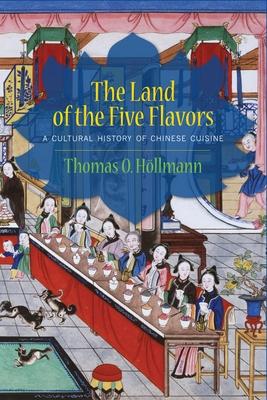Renowned sinologist Thomas O. Hllmann tracks the growth of food culture in China from its earliest burial rituals to today's Western fast food restaurants, mapping Chinese cuisine's geographical variations and local customs, indigenous factors and foreign influences, trade routes, and ethnic associations. Hllmann details the food practices of major Chinese religions and the significance of eating and drinking in rites of passage and popular culture. He enriches his narrative with thirty of his favorite recipes and a selection of photographs, posters, paintings, sketches, and images of clay figurines and other objects excavated from tombs.
Hllmann's award-winning history revisits the invention of noodles, the role of butchers and cooks in Chinese politics, debates over the origin of grape wines, and the causes of modern-day food contamination. He discusses local crop production, the use of herbs and spices, the relationship between Chinese food and economics, the influence of Chinese philosophy, and traditional dietary concepts and superstitions. Citing original Chinese sources, Hllmann uncovers fascinating aspects of daily Chinese life, constructing a multifaceted compendium that inspires a rich appreciation of Chinese arts and culture.
Book
The Land of the Five Flavors: A Cultural History of Chinese Cuisine
(Write a Review)
Hardcover
$46.67
Renowned sinologist Thomas O. Hllmann tracks the growth of food culture in China from its earliest burial rituals to today's Western fast food restaurants, mapping Chinese cuisine's geographical variations and local customs, indigenous factors and foreign influences, trade routes, and ethnic associations. Hllmann details the food practices of major Chinese religions and the significance of eating and drinking in rites of passage and popular culture. He enriches his narrative with thirty of his favorite recipes and a selection of photographs, posters, paintings, sketches, and images of clay figurines and other objects excavated from tombs.
Hllmann's award-winning history revisits the invention of noodles, the role of butchers and cooks in Chinese politics, debates over the origin of grape wines, and the causes of modern-day food contamination. He discusses local crop production, the use of herbs and spices, the relationship between Chinese food and economics, the influence of Chinese philosophy, and traditional dietary concepts and superstitions. Citing original Chinese sources, Hllmann uncovers fascinating aspects of daily Chinese life, constructing a multifaceted compendium that inspires a rich appreciation of Chinese arts and culture.Hardcover
$46.67